External links
- Service Call title listing at the Internet Speculative Fiction Database
| | This article about a science fiction short story (or stories) published in the 1950s is a stub. You can help Wikipedia by expanding it. |
"Service Call" is a science fiction short story by American writer Philip K. Dick. It was first published in Science Fiction Stories , July 1955.
The plot centers on a man, Courtland, who one evening at his home is visited by a nervous and peculiar repairman. The repairman states he is answering a service call made from Courtland's address and wishes to repair some sort of appliance called a "swibble". Courtland is irritated by the disturbance. Having not made any appointment, nor having the slightest clue about swibbles, Courtland angrily sends the man away. Shortly later, Courtland gets curious about the man. He goes back to his door to see if he is still there. There is no sign of the man save for the crumpled service order on the ground. Courtland examines the paper to discover that the company the man works for will be founded 9 years in the future. Courtland phones his colleagues with an idea. The service man returns, confused and sure he has the correct address. Courtland and his colleagues discover the man works for an authoritarian bio-technology company from an alternate future.
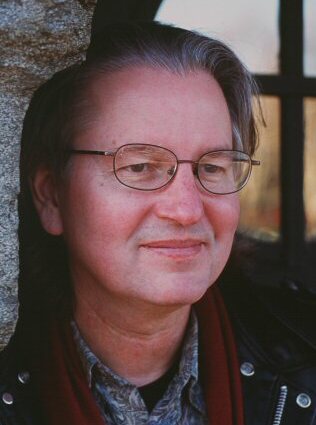
Michael Bruce Sterling is an American science fiction author known for his novels and short fiction and editorship of the Mirrorshades anthology. In particular, he is linked to the cyberpunk subgenre.

Cyberpunk is a subgenre of science fiction in a dystopian futuristic setting that tends to focus on a "combination of lowlife and high tech", featuring futuristic technological and scientific achievements, such as artificial intelligence and cyberware, juxtaposed with societal collapse, dystopia or decay. Much of cyberpunk is rooted in the New Wave science fiction movement of the 1960s and 1970s, when writers like Philip K. Dick, Michael Moorcock, Roger Zelazny, John Brunner, J. G. Ballard, Philip José Farmer and Harlan Ellison examined the impact of drug culture, technology, and the sexual revolution while avoiding the utopian tendencies of earlier science fiction.

Herbert George Wells was an English writer. Prolific in many genres, he wrote more than fifty novels and dozens of short stories. His non-fiction output included works of social commentary, politics, history, popular science, satire, biography, and autobiography. Wells' science fiction novels are so well regarded that he has been called the "father of science fiction".

Hugo Gernsback was a Luxembourgish–American editor and magazine publisher, whose publications included the first science fiction magazine, Amazing Stories. His contributions to the genre as publisher were so significant that, along with the novelists H. G. Wells and Jules Verne, he is sometimes called "The Father of Science Fiction". In his honor, annual awards presented at the World Science Fiction Convention are named the "Hugos".

Kim Stanley Robinson is an American writer of science fiction. He has published 22 novels and numerous short stories and is best known for his Mars trilogy. His work has been translated into 24 languages. Many of his novels and stories have ecological, cultural, and political themes and feature scientists as heroes. Robinson has won numerous awards, including the Hugo Award for Best Novel, the Nebula Award for Best Novel and the World Fantasy Award. The Atlantic has called Robinson's work "the gold standard of realistic, and highly literary, science-fiction writing." According to an article in The New Yorker, Robinson is "generally acknowledged as one of the greatest living science-fiction writers."
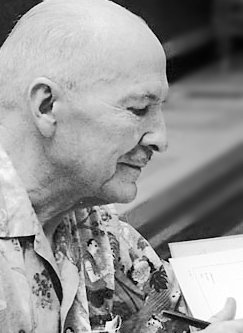
Robert Anson Heinlein was an American science fiction author, aeronautical engineer, and naval officer. Sometimes called the "dean of science fiction writers", he was among the first to emphasize scientific accuracy in his fiction, and was thus a pioneer of the subgenre of hard science fiction. His published works, both fiction and non-fiction, express admiration for competence and emphasize the value of critical thinking. His plots often posed provocative situations which challenged conventional social mores. His work continues to have an influence on the science-fiction genre, and on modern culture more generally.

The Time Machine is a post-apocalyptic science fiction novella by H. G. Wells, published in 1895. The work is generally credited with the popularization of the concept of time travel by using a vehicle or device to travel purposely and selectively forward or backward through time. The term "time machine", coined by Wells, is now almost universally used to refer to such a vehicle or device.
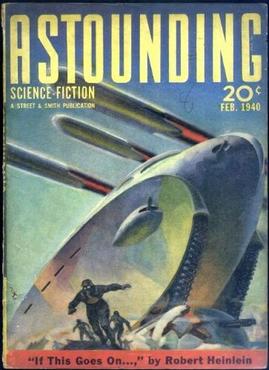
"If This Goes On—" is a science fiction novella by American writer Robert A. Heinlein, first serialized in 1940 in Astounding Science-Fiction and revised and expanded to novel length for inclusion in the 1953 collection Revolt in 2100. The story shows what might happen to Christianity in the United States with mass communications, applied psychology, and a hysterical populace. The story is part of Heinlein's Future History series.
"—We Also Walk Dogs" is a science fiction short story by American writer Robert A. Heinlein. One of his Future History stories, it was first published in Astounding Science Fiction and collected in The Green Hills of Earth.
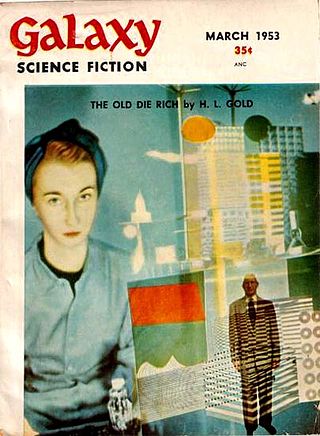
Horace Leonard Gold was an American science fiction writer and editor. Born in Canada, Gold moved to the United States at the age of two. He was most noted for bringing an innovative and fresh approach to science fiction while he was the editor of Galaxy Science Fiction, and also wrote briefly for DC Comics.
The Dark Tower is an incomplete manuscript written by C. S. Lewis that appears to be an unfinished sequel to the science fiction novel Out of the Silent Planet, though allegations have been raised about its authenticity. Perelandra instead became the second book of Lewis' Space Trilogy, concluded by That Hideous Strength. Walter Hooper, Lewis' literary executor, titled the fragment and published it in the 1977 collection The Dark Tower and Other Stories. The Lewis scholar Kathryn Lindskoog challenged the authenticity of the work.
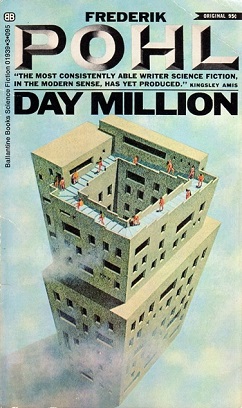
Day Million is a collection of science fiction short stories by American writer Frederik Pohl, published in June 1970.
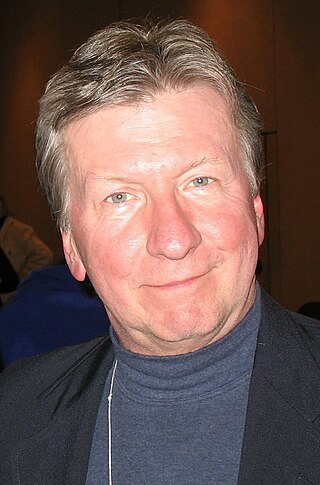
Francis Paul Wilson is an American medical doctor and author of horror, adventure, medical thrillers, science fiction, and other genres of literary fiction. His books include the Repairman Jack novels—including Ground Zero, The Tomb, and Fatal Error—the Adversary cycle—including The Keep—and a young adult series featuring the teenage Jack. Wilson has won the Prometheus Award, the Bram Stoker Award, the Inkpot Award from the San Diego ComiCon, and the Lifetime Achievement Award of the Horror Writers of America, among other honors. He lives in Wall, New Jersey.
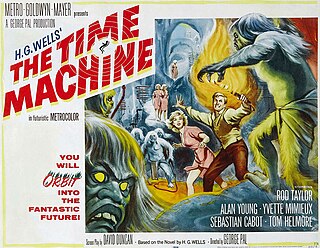
Time travel is a common theme in fiction, mainly since the late 19th century, and has been depicted in a variety of media, such as literature, television, film, and advertisements.

The literary genre of science fiction is diverse, and its exact definition remains a contested question among both scholars and devotees. This lack of consensus is reflected in debates about the genre's history, particularly over determining its exact origins. There are two broad camps of thought, one that identifies the genre's roots in early fantastical works such as the Sumerian Epic of Gilgamesh. A second approach argues that science fiction only became possible sometime between the 17th and early 19th centuries, following the scientific revolution and major discoveries in astronomy, physics, and mathematics.
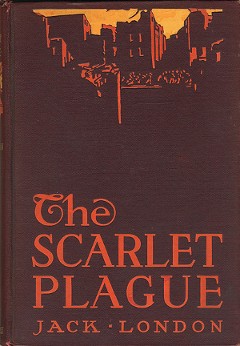
The Scarlet Plague is a post-apocalyptic fiction novel by American writer Jack London, originally published in The London Magazine in 1912. The book was noted in 2020 as having been very similar to the COVID-19 pandemic, especially given London wrote it at a time when the world was not as quickly connected by travel as it is today. However unlike COVID-19, in this story, victims died within an hour and mortality was practically 100%.

Dishonored Lady is a 1947 American film noir crime film directed by Robert Stevenson and starring Hedy Lamarr, Dennis O'Keefe and John Loder. It is based on the 1930 play Dishonored Lady by Edward Sheldon and Margaret Ayer Barnes. Lamarr and Loder were married when they made the film, but they divorced later in 1947.
Lafayette Ronald Hubbard, better known as L. Ron Hubbard, was an American pulp fiction author. He wrote in a wide variety of genres, including science fiction, fantasy, adventure fiction, aviation, travel, mystery, western, and romance. His United States publisher and distributor is Galaxy Press. He is perhaps best known for his self-help book, the #1 New York Times bestseller Dianetics: The Modern Science of Mental Health, and as the founder of the Church of Scientology.

Sir Arthur Charles Clarke was an English science fiction writer, science writer, futurist, inventor, undersea explorer, and television series host.
The anthropologist Leon E. Stover says of science fiction's relationship to anthropology: "Anthropological science fiction enjoys the philosophical luxury of providing answers to the question "What is man?" while anthropology the science is still learning how to frame it". The editors of a collection of anthropological SF stories observed:
Anthropology is the science of man. It tells the story from ape-man to spaceman, attempting to describe in detail all the epochs of this continuing history. Writers of fiction, and in particular science fiction, peer over the anthropologists' shoulders as the discoveries are made, then utilize the material in fictional works. Where the scientist must speculate reservedly from known fact and make a small leap into the unknown, the writer is free to soar high on the wings of fancy.